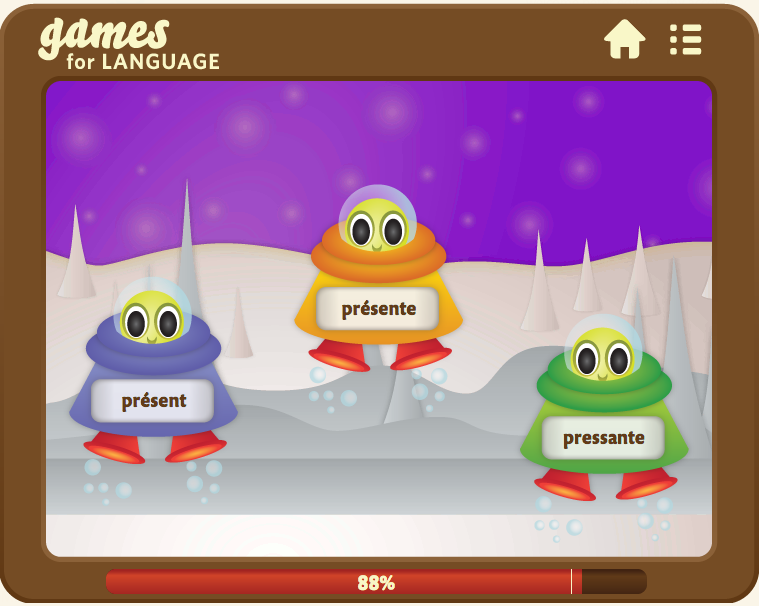5 Tips for Learning with Language Games
 More and more online language learning sites are adding games or game-like features to their course repertoire. And that is for good reason: Making language learning more entertaining can also produce better results.
More and more online language learning sites are adding games or game-like features to their course repertoire. And that is for good reason: Making language learning more entertaining can also produce better results.
All four language skills – listening/comprehension, reading, speaking, and writing - can be practiced with interactive games or lessons/exercises that have game-like features.
Some baby boomers and older learners may not (yet) be as used to learning with games as generation X, Y, Z, but it seems inevitable that the trend of learning with games will continue.
Clearly, Gamesforlanguage.com was created with the idea that learning a language with games can be fun and effective. But we have also learned that players should observe a few "rules" or practices to get the most out of our games.

Here are our five (5) tips which are based on our own experience and on comments from our users. We have also incorporated them into our list of suggestions: “How to play and learn?”
1. Be mindful and pay attention to the spelling
When new foreign words first come up, take a moment to study them and memorize their typeface/appearance, especially when special foreign letters, accents, umlauts, etc. are involved. You'll have to recall the specifics later when you have to write them.
2. Limit the new vocabulary you learn daily to 15-20 words
It's easy to be carried away by easy games and just move on to the next set of new words. However, our brain is only able to handle so many words or expressions a day and move them from short-term to long-term memory. The number of new words one can learn a day may vary, but we suggest a range of 15-20.
3. Repeat the native speaker's words and phrases whenever you can
Learning to speak a new foreign language requires pronouncing the foreign words. This may feel awkward and strange at the beginning, but you have to do it as often as you can.
Some online language programs have recording features and you are asked to emulate the native speaker (see also 5. below). But don't even wait until you can record. Take every opportunity to repeat a foreign word, phrase or sentence, right from the start.
4. Play some games every day
Especially at the beginning it's important that you get into a learning habit. Set a time that fits best into your schedule. Just 15-20 minutes for 5 or 6 days in a row will be better than an hour or two once a week!
The daily practice will have you soon naming objects and activities in your new language. This way you are sure to move the new vocabulary into your long-term memory.
5. Record your voice and compare yourself to the native speaker
We have not been able to make recording your voice into a game. Some language courses are using voice recognition and voiceprint spectrograms to compare your voice to the native speaker's voice. This may be fun to watch, but can also be frustrating, especially at the beginning.
However, you can make your own game out of imitating the native speaker by acting the part with gusto. And you should really focus on listening and hearing the difference between your pronunciation and that of the native speaker. That is a sure way to improve.
Games for learning languages are evolving. There are many gaming features that can make them more challenging and exciting. Not all of them are make learning more effective, but more research will be needed to understand what the trade-offs are.
